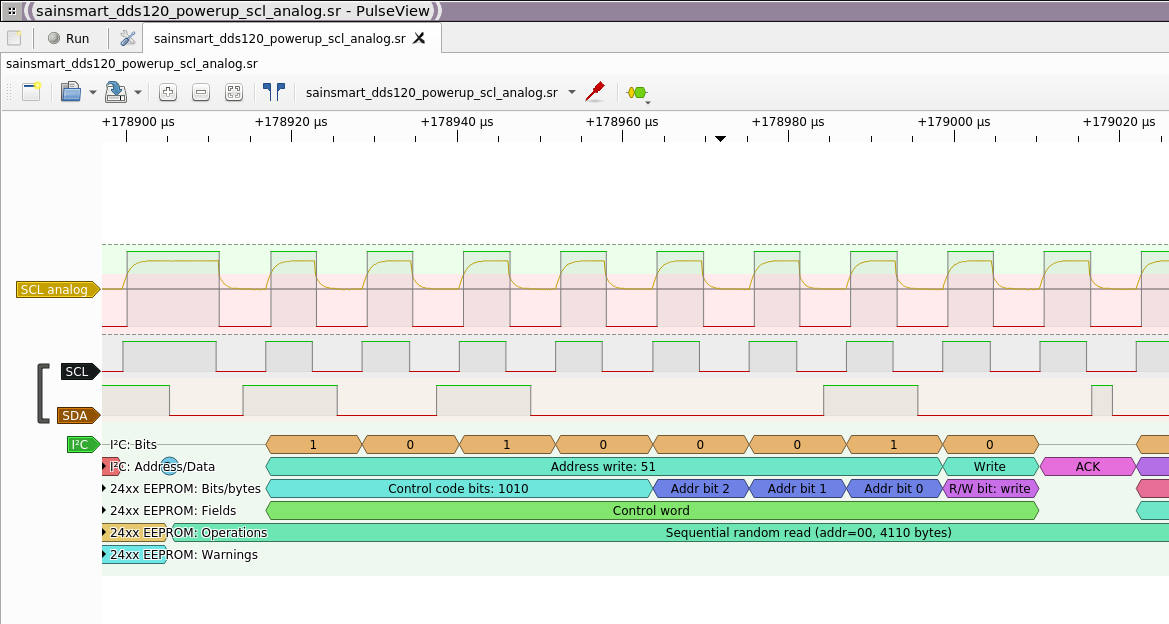 We're happy to announce the new PulseView 0.4.1 release!
We're happy to announce the new PulseView 0.4.1 release!
This is quite a major release with loads of new features and bugfixes.
It requires the recently released libsigrok 0.5.1 and libsigrokdecode 0.5.2.
We provide various binary builds for Linux (AppImage), Windows (.exe installer) and Mac OS X (DMG) for the release version over at the Downloads page (in addition to the usual nightly builds).
Major new features and improvements:
-
One of the most-often requested features has been implemented: Snapping cursors to signal edges. The current implementation snaps to edges of a specific channel if the mouse cursor is inside that channel, and it snaps to edges of any channel otherwise. When moving both cursors at the same time, only the left cursor will snap, while the overall distance between the cursors stays the same (which allows for easy measurements/comparisons).
-
There's a bunch of new command-line switches such as --driver or --dont-scan, as well as option support for --input-file, see manpage for details. You can now also load multiple files at once when starting Pulseview, e.g. via "pulseview *.sr" or the like.
-
There's support for converting analog channels to digital/logic channels now, either via a threshold or a schmitt-trigger method. This allows feeding the converted channels to protocol decoders, which was not possible before.
-
PulseView now has theme support and ships with the current (default) "light" theme and two new "dark"-style themes which some people might prefer.
-
There have been a bunch of UI improvements, such as showing a tooltip for the cursor measurement values if needed, logic high areas are now colored differently for clearer visualization, there's a convenience mouse hover vertical line now, you can enable/disable many channels more easily via buttons, and lots more.
-
Protocol decoder annotations can now be exported in a user-configurable format, either all annotations, or only those of a certain annotation row, or only those between the cursors, etc.
-
Protocol decoder channel name auto-mapping has been improved, so it'll probably match your desired channel setup more often without requiring manual channel assignment.
There's also a new PulseView HTML manual as well as a PDF manual with a bunch of explanations and help. If you're missing something in there, please let us know and/or provide patches!
Additionally, there have been quite a few performance and memory usage improvements. E.g. files should load quite a bit faster now, some painting operations are faster as well, various memory leaks and inefficiencies have been fixed, and so on.
Of course there have also been a huge amount of fixes for some rather annoying bugs (e.g. UI lag when changing decoder options/channels) and also many smaller ones. A bunch of crash conditions on various OSes have also been fixed.
See the NEWS file for a much more detailed list of changes, or browse the git history for even more details.